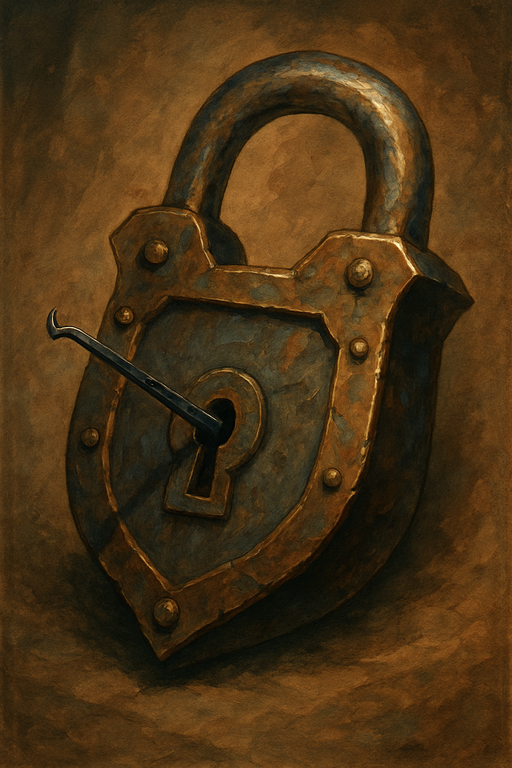Hey everyone,
It's not Friday, but it absolutely feels like a Brain Drain Friday today. It's hot, and I had to go on one of those draining shopping trips that usually signal the end of my week. So, my brain is pretty much checked out for any heavy thinking.
On days like this, I appreciate simple, effective concepts, which brings me to a TTRPG tip we've touched on before but never fully explored: the art of Failing Forward.
What is "Failing Forward"?
In many games, a failed dice roll can feel like a dead end. You try to pick the lock, you fail, the door is still locked. Story stalls. You try to persuade a guard, you fail, he still says no. Story stalls.
"Failing Forward" is the principle that a failed roll shouldn't stop the story. Instead, it should introduce a new complication or a partial success with a cost. The players don't get what they wanted, but something still happens, and the story moves forward, often in a more interesting or unexpected direction.
Why It's a Lifesaver for "Lazy" (or Tired) GMs
This isn't just about making the game more exciting; it's about making your life as a GM easier.
- It Kills Dead Ends: It's the ultimate tool for preventing the game from grinding to a halt. You never have to worry about the players failing the one crucial roll they need to advance the plot.
- It Creates Organic Story: The new problems that arise from failure often lead to the most memorable adventures—things you never could have planned.
- It Reduces Panic: No more "Oh no, what do I do now?" moments when the dice don't go the players' way. The failure itself creates the "what's next."
Examples in Action
Let's look at a few classic scenarios:

1. The Locked Door
- Binary Fail: "You fail your roll to pick the lock. The door remains locked." (Boring. Now what?)
- Failing Forward: "You fail to pick the lock. Just as you feel the last tumbler about to click, your lockpick snaps off inside the mechanism! The door is still locked, it's now jammed, and the sound of the snapping metal echoes down the hallway..." (New problem, added urgency).
2. The Social Encounter
- Binary Fail: "You try to bribe the city guard. He refuses your money." (Stalled).
- Failing Forward: "Your attempt to bribe the guard fails. He's insulted by your paltry offer. He pockets the coins and says, 'For that price, I'll give you a five-minute head start before I raise the alarm.'" (Increased stakes, immediate consequence, new urgency).
3. The Knowledge Check
- Binary Fail: "You fail your history check to identify the ancient sigil. You have no idea what it is." (Missed opportunity).
- Failing Forward: "You can't quite identify the sigil, but you recognize the artistic style as belonging to a notoriously paranoid and trap-loving sect of wizards. As you're looking at it, you notice a faint, nearly invisible tripwire near the base of the pedestal." (Partial success with a new, immediate danger).
Adopting a "fail forward" mindset changes the game from a simple pass/fail exercise into a dynamic story of "success or complication." It makes every roll count and keeps the narrative moving, which is a blessing for any GM, especially one whose brain has been melted by heat and shopping.
As always,
Michael Garcia a.k.a. TheCrazyGM
